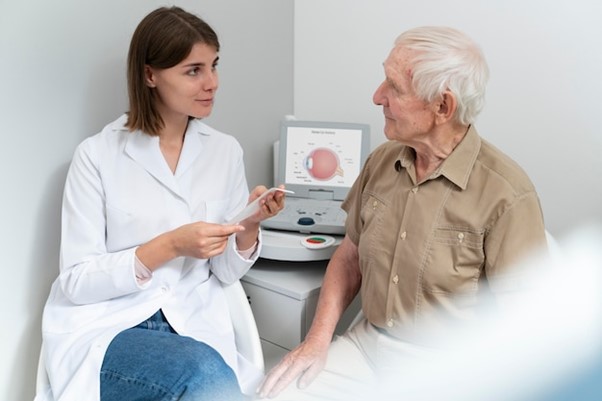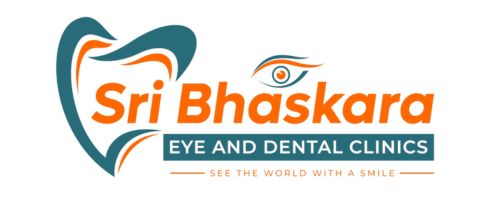Age-Related Macular Degeneration (AMD) is a common eye condition that mostly affects older adults. It can lead to serious vision problems, especially the part of our eyesight that lets us see straight ahead—called central vision. Age related macular degeneration makes it hard to read, drive, or even recognize faces. Catching it early and making life changes can minimize its impact. Our goal is to help you understand what AMD is, clear up any myths, and look at treatment options. This guide will offer insights into age related macular degeneration prevention, explaining why it’s important to pay attention to your eye health.
Understanding Age-Related Macular Degeneration
Age related macular degeneration is an eye issue that impacts the macula, the part of the eye responsible for clear vision in your direct line of sight. As the macula deteriorates, vision loss can occur. There are two types of this condition: dry and wet. Dry AMD is more common and happens slowly; it includes spots and thinning of the macula. Wet AMD is less common but more severe, marked by new blood vessels that leak fluid and blood under the macula, causing quick vision loss.
Growing older and genetics are huge factors contributing to age related macular degeneration causes. Those with a family history are more likely to develop it as they age. Recognizing these aspects can help in planning for your eye care.
Recognizing the Symptoms of AMD
Age related macular degeneration symptoms often begin subtly but progress over time. Early on, you might notice fuzzy vision or have trouble reading. Colors may seem dull, and you might see straight lines as wavy or distorted. As the condition advances, you could experience a significant loss of central vision, making daily tasks harder.
To catch problems early, you can try the Amsler grid test. This tool helps identify vision changes and alerts you to seek professional help if needed. Early signs shouldn’t be ignored since timely action can help manage the condition effectively.
Unveiling the Risk Factors
Some risks make age related macular degeneration in elderly more likely. Age is a big one, and so is family history. Your lifestyle can also raise your risk. Smoking is a major factor for AMD, along with a poor diet lacking in key nutrients.
There are common myths about AMD, such as assuming that all poor dietary habits cause it. While a poor diet can increase risk, it doesn’t automatically lead to AMD. Clarifying these misconceptions can aid in understanding age related macular degeneration causes better and taking proactive steps.
Proactive Lifestyle Modifications
To slow down or prevent age related macular degeneration, some lifestyle changes can be beneficial:
- Quit smoking: This is crucial since smoking is a top risk factor for AMD.
- Eat a balanced diet: Include foods rich in omega-3 fatty acids and leafy greens.
- Exercise regularly: Physical activity helps maintain a healthy weight and boosts overall eye health.
- Use protective eyewear: Sunglasses that block UV rays can help protect your eyes from harm.
These simple habits not only serve as effective natural remedies for age related macular degeneration but also support your general well-being.
Supplements and Vitamins for Eye Health
Scientific research suggests that certain age related macular degeneration vitamins can support eye health. The AREDS formula, rich in antioxidants and zinc, is known to have benefits. Nutrients like lutein and zeaxanthin are also good for your eyes.
But it’s always a good idea to talk to a healthcare professional. They can guide you on taking supplements and whether they’re right for your specific eye health needs, ensuring you follow an effective plan.
Exploring Advanced AMD Treatment Options
For advanced cases, age related macular degeneration treatment may include injections that help slow down vision loss. New methods like photodynamic therapy use light to target and remove problematic blood vessels in the eye. Nutritional supplements can also play a part in managing age related macular degeneration causes, slowing progression and improving eye health.
Innovative treatments continue to develop, and it’s important to stay informed about the latest research on age related macular degeneration for the best options.
Conclusion & Encouragement to Seek Professional Guidance
There are many lifestyle and diet changes that can limit the risk of AMD. Taking proactive steps can help preserve your precious vision. Most importantly, consult with healthcare providers to get personalized advice. Early engagement with professionals can make a significant difference in managing AMD.
Additional Resources and Success Stories
Dive deeper into this subject with resources like books and articles dedicated to age related macular degeneration diet and treatments. Success stories from AMD patients can inspire hope and demonstrate real-world applications of managing this condition.
Support groups also offer valuable guidance and a sense of community. Doctors and specialists can be pivotal allies to navigate AMD effectively, ensuring you feel supported on your health journey.
Customized Call to Action for Sri Bhaskara Eye and Dental Clinic
Sri Bhaskara Eye and Dental Clinic is eager to help you safeguard your vision. Our team of experts is ready to provide comprehensive care tailored to your needs. We specialize in age related macular degeneration treatment and offer guidance on preventive measures to protect your eyes for the future.
Book an appointment today to benefit from our personalized approach to eye care. You can reach us at [contact number] or visit our website to schedule a visit. Taking action now can make a lasting impact on your eye health.



